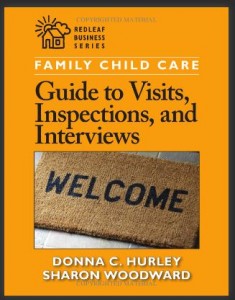Congress will be back in session September 9. Some members take recess as an opportunity to re-engage with their community and the constituents they serve. But how well do you connect with your representatives the other months of the year. Foster and cultivate those important relationships with your Senators and Representative, as well as their key staff so that when they are in town, on the next recess, you can continue the conversation, in person. Print out these basic suggestions and keep handy for the next time Congress goes on recess. You want them to know who you are and what issues you care about –early learning, child care, resource and referral services, etc., and how those issues are affecting your local community and your state.
 In order to ensure you get the most out of your elected officials, here are 5 tips for success:
In order to ensure you get the most out of your elected officials, here are 5 tips for success:
1. Schedule a visit/meeting. Go to our congressional directory to look up the contact information for your Member’s district office(s). Call the office or send an email requesting a meeting, and be sure to briefly mention the purpose of the meeting.
2. Do your research before your meeting. You can make the most of your meeting time by being prepared and knowing your audience. Learn about your Member of Congress: is she/he a Democrat or a Republican? Is your Member on Facebook or Twitter? What committees is she/he on? Do those committees work on child care issues? You should also know whether the Member supports an increased investment in child care and early learning (and has voted accordingly). Visit the Core Issues page to get background on the issues.
3. Invite your elected officials to your child care program. Reach out to district staff or ask during a meeting with staff or your Member if they would like to visit your child care program: if you’re representing a child care resource and referral agency, you may have a recommendation of a place to visit. This is a great way for Members to connect what you do with what children need, and why investments in child care and early learning programs are so important. Members and their staff get a firsthand look at why quality child care is a necessity for any thriving community.
4. Attend scheduled town halls. Another great way to engage with your elected officials during recess is to attend a town hall meeting (or two!). Check your policymaker’s website to find out the date and location of any upcoming town hall meetings. In preparation for the meeting, write down–at most–two questions: you will not have a lot of time so make sure your questions are specific and straight to the point. Read our town hall tips sheet for more information.
5. Follow up. If you were able to get a meeting, attend a town hall, and/or host a Member at your early learning program, send a thank you note to your Member and their staff. Thank them for taking the time out to meet with you/have the town hall meeting/visit your program, and gently remind them why they should continue to support child care. Be sure to follow up on any requests you made at the meeting as well as any information they may have asked for. A few words of appreciation will have a lasting impact on your relationship with your elected officials and your long term advocacy efforts.
http://policyblog.usa.childcareaware.org/

